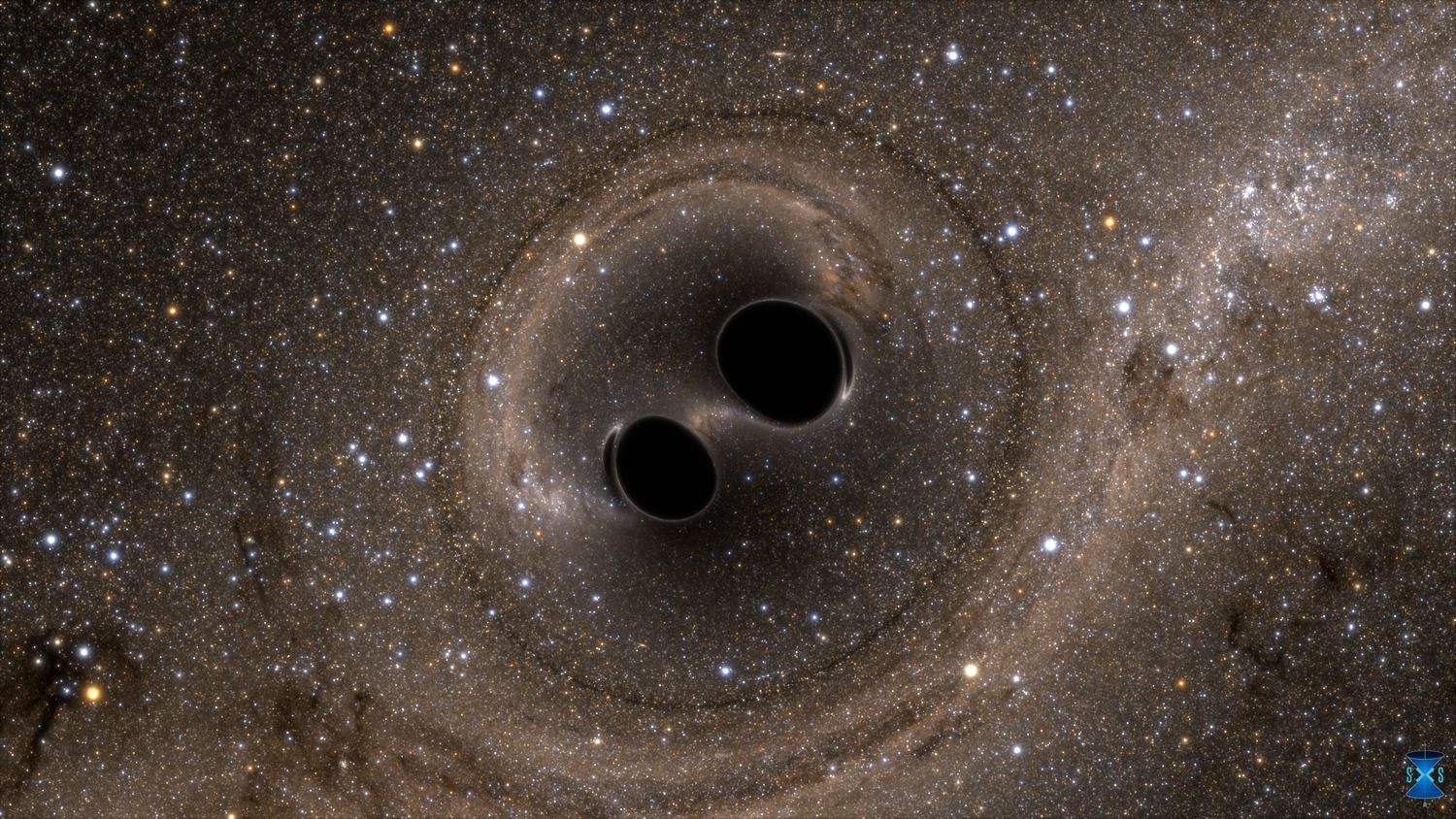
Update: The team announced the first detection of gravitational waves from colliding neutron stars. | Today, scientists studying gravitational waves are due to make a mysterious announcement of what's being hailed as an "unprecedented discovery" and you can watch the excitement live online starting at 10 a.m. ET.
The announcement is being led by scientists taking part in the Laser Interferometer Gravitational-Wave Observatory (LIGO) in the U.S. and the Virgo Collaboration in Europe, a total of three detectors that listen for gravitational waves. A network of other astronomical facilities worldwide is also part of the mystery.
The scientific community has been full of speculation for the past few weeks that LIGO had spotted something intriguing. Gossip began in earnest after an astronomer at the University of Texas tweeted "New LIGO." and referenced an optical component, which would mean something besides the black hole mergers the detector has spotted so far.
New LIGO. Source with optical counterpart. Blow your sox off!
— J Craig Wheeler (@ast309) August 18, 2017
Some experts suggest the hubbub was prompted by the detection of two neutron stars colliding, others speculate LIGO could shed light on dark matter, which could theoretically actually be made up of primordial black holes created just after the Big Bang.
Gravitational waves are often described as "ripples in the fabric of space-time." The idea is that very massive objects in the universe—like planets, stars, and black holes—all exert gravity on their surroundings (this is what keeps the Moon orbiting Earth). But when something dramatic enough happens, like two black holes spiraling towards each other and colliding, the event releases gravitational waves that ripple out from the source and travel across the universe.
LIGO has held four much-heralded press conferences in the past year and a half, beginning in February 2016, when the first ever detection of gravitational waves was announced. Albert Einstein predicted the phenomenon's existence more than a century ago, but until LIGO, no instrument was precise enough to pick up their tiny signals. Earlier this month, three of the leading figures behind LIGO received the Nobel Prize in physics for the discovery.
On Monday, whatever the news is will become official, and you can watch the drama unfold at a press conference being held by the National Science Foundation in Washington, D.C. There will be two panels of scientists, one at 10 a.m. ET and one at 11:15. Speakers include the executive director of LIGO, a spokesperson for the Virgo Collaboration, and scientists from a range of American universities.
A simultaneous press conference is being hosted by the European Southern Observatory, a German-based coalition of European astronomers that operates telescopes in Chile, but this conference is limited to journalists—so stay tuned Monday to hear what happens.
This article has been updated to include what the announcement turned out to be.
Uncommon Knowledge
Newsweek is committed to challenging conventional wisdom and finding connections in the search for common ground.
Newsweek is committed to challenging conventional wisdom and finding connections in the search for common ground.
About the writer
Meghan Bartels is a science journalist based in New York City who covers the science happening on the surface of ... Read more
To read how Newsweek uses AI as a newsroom tool, Click here.








